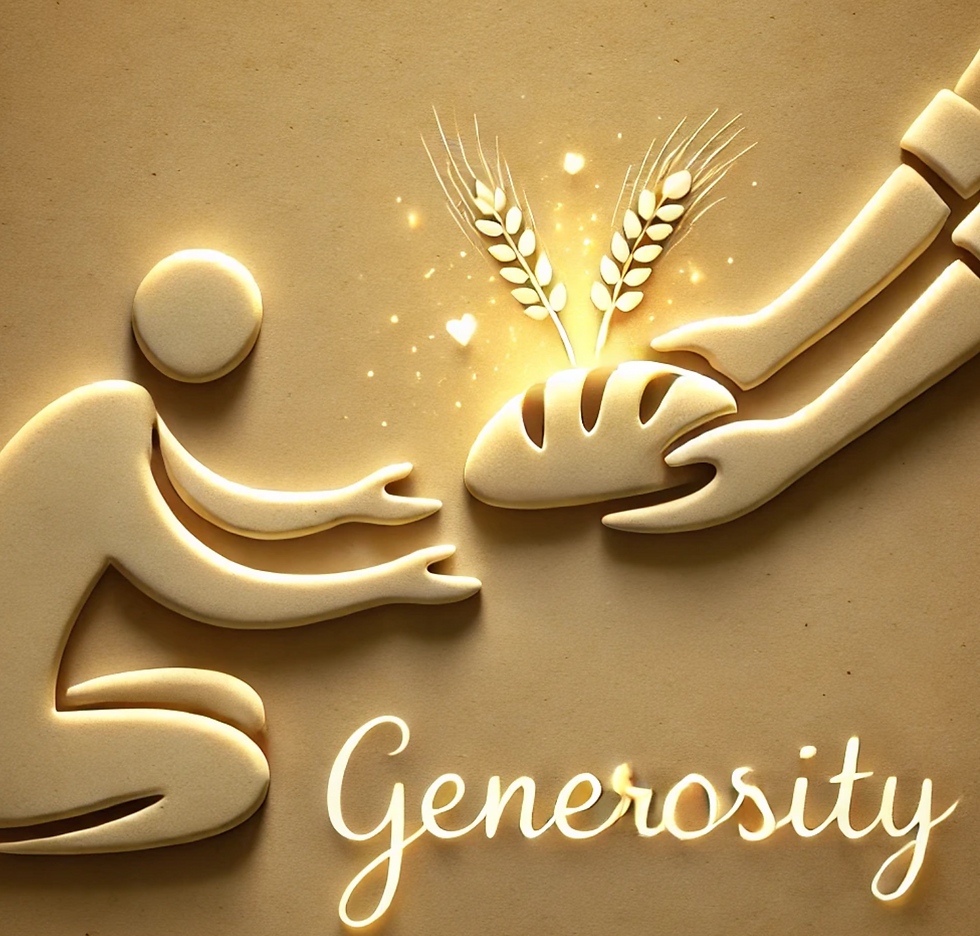
Generosity
Introduction to Generosity:
Define generosity as the willingness to give and share resources, time, and support with others.
Explain that generosity isn’t just about giving material things, but also about offering one’s time, attention, and kindness to others.

What Does the Value Mean?
Understanding Generosity:
Generosity involves a spirit of giving without expecting anything in return. It’s about putting others’ needs before your own.
It’s about being selfless and open-hearted, whether through acts of charity, volunteering, or simply offering help when needed.
Discuss how generosity reflects Catholic teachings, such as the call to serve others and to give as Christ gave to us.
Examples of the Value
Real-Life Examples of Generosity:
Share stories of individuals known for their generosity, like St. Nicholas, whose acts of kindness and charity became legendary.
Mention situations in school where generosity plays a role, such as helping a friend with homework or sharing resources with classmates.
Use examples from history or current events where acts of generosity have made a significant impact on communities or individuals.
Why Do We Need This Value?
The Importance of Generosity:
Explain that generosity helps build strong, supportive communities where everyone feels cared for and valued.
Discuss how generosity fosters a sense of gratitude and contentment, both for the giver and the receiver.
Highlight how acts of generosity can inspire others, creating a ripple effect of kindness and support throughout the community.
Examples of How This Value Can Apply to Us on a Daily Basis
Applying Generosity in Daily Life:
Encourage students to practice generosity by being willing to share their time, talents, and resources with others.
Discuss the importance of being generous not just with material goods, but also with encouragement, support, and kindness.
Suggest ways to demonstrate generosity daily, such as volunteering, helping someone in need, or simply offering a listening ear.
Add Final Thoughts on the Value
Final Reflection:
Emphasize that generosity is a powerful way to spread love and kindness, creating a more caring and connected community.
Encourage students to see generosity as a way of life, where giving becomes a natural and joyful part of their daily routine.
Conclusion or Takeaway
Conclusion:
Summarize the key points: generosity as selfless giving, its role in building community, and its ability to inspire and uplift others.
Challenge students to cultivate generosity in their lives, making it a habit to give freely and support those around them.
End with a quote on generosity, such as "The measure of a life is not its duration, but its donation" (Peter Marshall).